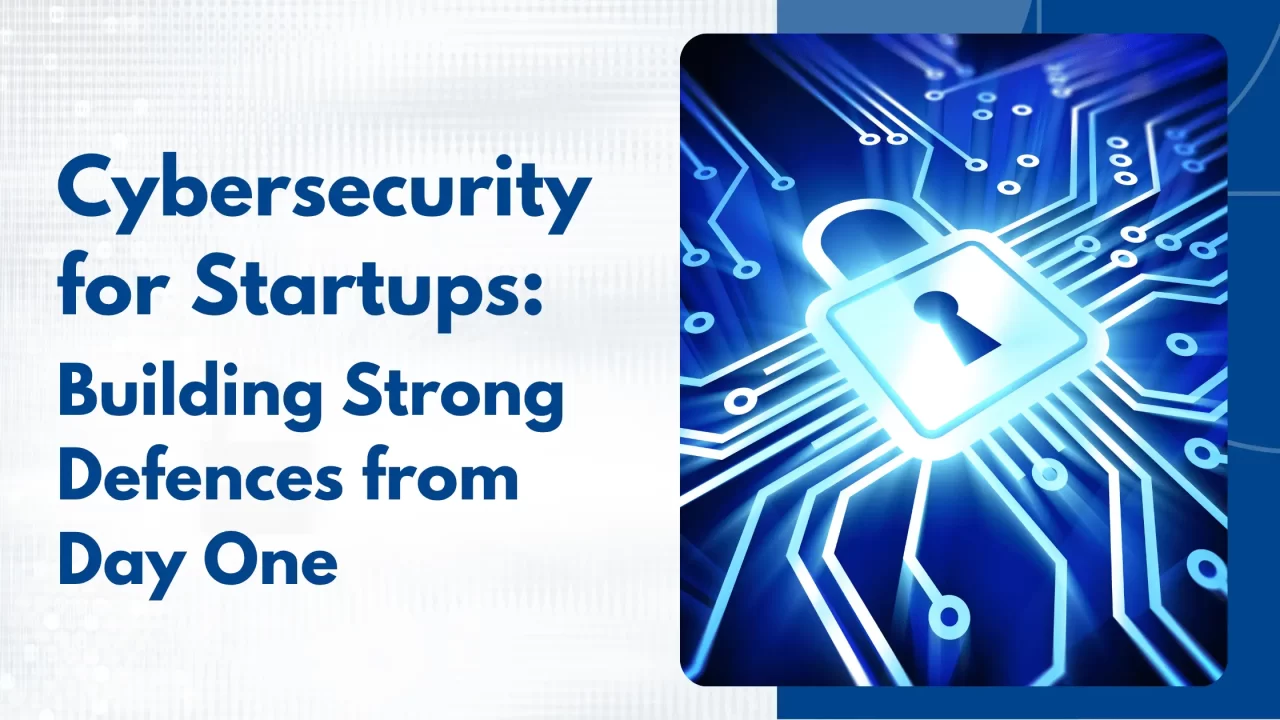Startups in India are fueling innovation, disrupting industries, and rapidly scaling their digital operations. But amid the excitement of product launches, funding rounds, and user acquisition, cybersecurity often takes a backseat. This oversight can be costly—cyberattacks don’t discriminate based on company size.
Startups may not have the budgets of large enterprises, but they do manage valuable data, intellectual property, and customer trust. A single breach can derail momentum, compromise investor confidence, and lead to regulatory trouble.
This blog outlines essential cybersecurity measures every startup should adopt from day one to safeguard their future.
Why Startups Are Prime Targets
- Limited Security Infrastructure: Many startups lack dedicated security teams or enterprise-grade tools.
- Rapid Growth Pains: As startups scale quickly, security is often an afterthought during development and hiring.
- Attractive Data: Startups handle sensitive customer information, proprietary algorithms, and financial data.
- Third-Party Dependencies: Many rely on SaaS, open-source code, or outsourced development, increasing exposure.
In short, attackers view startups as soft targets with high-value assets.
Cybersecurity Foundations for Startups
1. Prioritize Endpoint Security Early
Laptops, desktops, and mobile devices are entry points for attackers. Implement strong endpoint protection and device management from the start. Vanaps offers robust endpoint security solutions designed for fast-growing teams.
2. Establish Strong Access Controls
Use role-based access control (RBAC), enforce multi-factor authentication (MFA), and avoid shared credentials. Grant employees only the access they need.
3. Secure Cloud Workloads with CNAAP
Most startups operate in cloud environments. A Cloud-Native Application Protection Platform (CNAAP) helps secure APIs, containers, and workloads with real-time monitoring and policy enforcement.
4. Build Security into the Development Lifecycle
Adopt DevSecOps from day one. Integrate security testing into CI/CD pipelines, scan for vulnerabilities in dependencies, and follow secure coding practices.
5. Conduct Regular Risk Assessments
Startups should periodically evaluate their security posture—identify weak points, data flow risks, and compliance gaps. This helps prioritize budget and resources effectively.
6. Train Employees and Founders
Cybersecurity is a team effort. Offer ongoing training to recognize phishing attacks, social engineering, and password hygiene. Founders should also lead by example in following security best practices.
7. Maintain an Incident Response Plan
Even small teams should document how they will respond to a security incident. Define who does what, how systems are isolated, and how stakeholders are informed.
Cost-Effective Cybersecurity Tips for Startups
- Use Open-Source Security Tools: Tools like OSSEC, Snort, and ClamAV can offer basic protection at no cost.
- Leverage Built-In Cloud Security Features: AWS, Azure, and Google Cloud provide free and low-cost security capabilities.
- Outsource to Managed Security Providers: Services like Vanaps can provide scalable protection without requiring in-house expertise.
- Automate Patching and Updates: Keep systems and apps secure by automating updates.
- Back Up Critical Data Regularly: Store backups securely and test restoration procedures.
Regulatory & Compliance for Startups in India
Even small startups must comply with applicable cybersecurity and data protection regulations:
- DPDPA (Digital Personal Data Protection Act): Mandates consent-based data handling, breach reporting, and privacy safeguards.
- CERT-In Guidelines: Requires reporting of certain cybersecurity incidents within strict timelines.
- ISO 27001: Often necessary to win enterprise clients or operate in regulated sectors.
Understanding these requirements early helps avoid non-compliance risks later.
Startups That Ignored Security – And Paid the Price
While names can’t always be disclosed, several Indian and global startups have suffered due to weak security:
- Data leaks from misconfigured cloud storage
- Phishing attacks that led to fund diversion
- Ransomware hitting small SaaS firms with operational downtime
These incidents cost startups time, money, and user trust.
Conclusion
Cybersecurity isn’t just a cost center—it’s a growth enabler. Investors and customers increasingly favor startups that take data protection seriously. By embedding cybersecurity into your DNA from day one, you build a foundation for secure innovation and sustainable success.
Want to secure your startup’s future? Book a free consultation with Vanaps and take the first step toward strong cyber hygiene.



